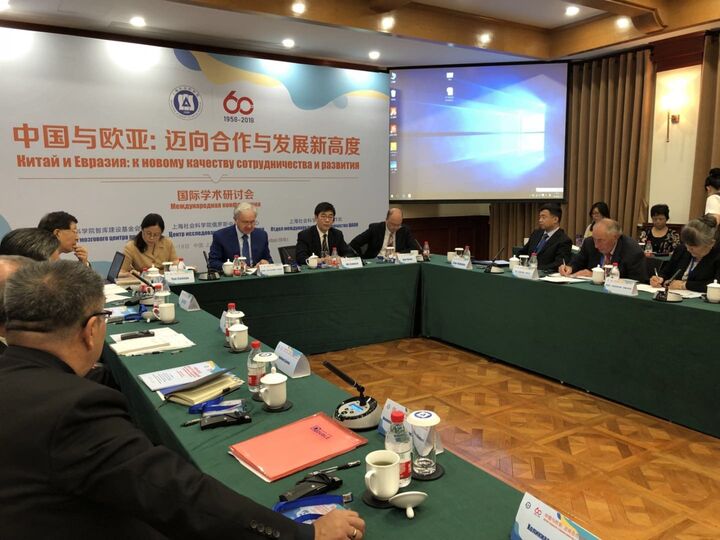On 17 September 2018, the SCO Secretary-General took part in the China and Eurasia: Taking a New Quality of Cooperation and Development international scientific conference held in Shanghai. The conference was attended by prominent scientists as well as leading international relations experts from Russia, China and Central Asian counties. As is usual, the conference was organised by the Shanghai Academy of Social Sciences.
"The SCO was born out of Russia and China's cooperation format with Central Asian counties. In this sense, Central Asia can without exaggeration be considered the most important area of the Organisation's practical activities," Rashid Alimov said in his address to the participants of the conference and noted that "when such large and reputable South Asian countries such as India and Pakistan jointed the SCO, the Organisation received new capacities to further promote cooperation in all the spheres of practical cooperation and to provide for sustainable development in the region."
Speaking about the outcome of the Qingdao summit, the SCO Secretary-General emphasised that "in a practical sense, the Organisation continues to upgrade the forms and methods of joint efforts aimed at countering terrorism and extremism; it has given an additional boost to the anti-drug cooperation as well as cooperation in countering trans-border crimes."
The Secretary-General pointed out the importance of the SCO's expanded area of activity from the Pacific Ocean to the Baltics and from the Polar to the Indian oceans because India and Pakistan joined the Organisation and said that this provided a new look on the scale of interregional cooperation in the Greater Eurasia. In this context, Mr Alimov added that "searching for the best models to join and match the member countries' national strategies of economic development, large integration processes in the EAEU and ways to implement President of China Xi Jinping's The Belt and Road initiative discovers great prospects to establish a broad, open, mutually beneficial plus equal partnership in the SCO space."
According to Mr Alimov's estimation, "the interregional connections in Greater Eurasia will grow. There are good capacities to strengthen cooperation with Southeastern Asia and its main multilateral organisation, ASEAN."
"Today the comprehensive cooperation in the SCO, in fact, defines the vector of regional development. I am confident that the joint efforts in the framework of the existing SCO agreements will provide for the welfare and prosperity of the peoples living in Eurasia," the Secretary-General said.
Mr Alimov also held a meeting with Yu Xinhui, Secretary of CPC Committee at the Shanghai Academy of Social Sciences. They discussed cooperation prospects between the SASS and the SCO Secretariat in the context of the upcoming 20th anniversary of the SCO in 2021.
The Shanghai Academy of Social Sciences (SASS) is the oldest think tank in China that studies humanitarian and social sciences. The SASS is the largest academy outside Beijing. As of today, the academy has 760 employees, including 550 research fellows. It has 17 institutes and more than 20 multi-disciplinary research centres.
